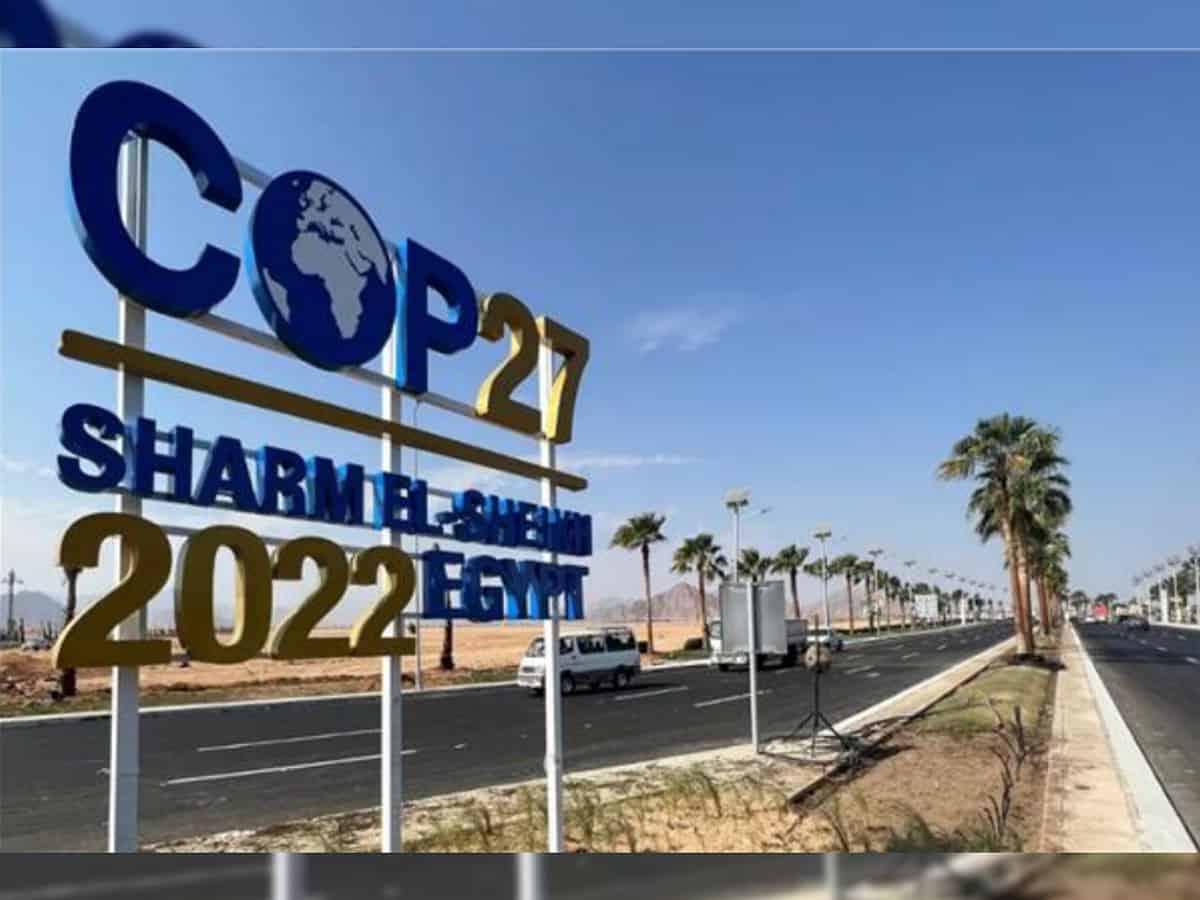
.New Delhi: While the UN climate summit in Egypt concluded with a landmark decision to establish a fund to address loss and damage, the outcome on other crucial issues like phaseout of all fossil fuels reflected little progress when compared to the deal struck a year ago in Scotland.
The hope at COP27 was to include a “phaseout of all fossil fuels”, including oil and gas, as proposed by India and backed by many developed and developing countries including the EU and the US, but the final agreement did not essentially build on what was agreed upon in COP26.
However, when compared to COP26, COP27 has brought in stronger language on renewables and included the just transition principles while bringing up energy transition.
The Sharm-El Sheikh Implementation Plan called upon “parties to accelerate the development, deployment and dissemination of technologies, and adoption of policies, to transition towards low-emission energy systems, including by rapidly scaling up deployment of clean power generation and energy efficiency measures, including accelerating efforts towards phase down of unabated coal power and phase-out of inefficient fossil fuel subsidies, while providing targeted support to the poorest and most vulnerable in line with national circumstances and recognising the need for support towards a just transition.”
The plan reaffirmed the Paris Agreement goal of holding the increase in the global average temperature to well below 2 degree Celsius above pre-industrial levels, recognizing that this would “significantly reduce the risks and impacts of climate change”.
A fund to address loss and damage, which refers to destruction caused by climate change-induced disasters, was a long-pending demand of poor and developing countries, including India, and the key element at this year’s UN climate summit.The success of the talks hinged on progress on this track.
Developed nations, particularly the US, had opposed this new fund over fears that it would hold them legally liable for massive damages caused by climate change.
The proposal for a loss and damage fund was put forward by the G77 and China (India is part of this group), least developed countries and small island states.
Vulnerable countries had said that they would not leave COP27 without a loss and damage finance facility.
Shruti Sharma, Senior Policy Advisor, International Institute for Sustainable Development said it is disappointing that COP27 did not build on the COP26 statement to deliver a stronger message on phaseout of fossil fuels.
“COP26 asked parties to, among other things, transition to low energy systems through the phasedown of unabated coal phase down. The hope at COP27, through India’s proposal, was to include a phaseout of all fossil fuels, including coal oil and gas. Perhaps the most significant milestone for this COP has been the creation of a loss and damage fund,” she said.
“COP27 has been a tough pill to swallow but in the end there has been more progress than was anticipated.The negotiators have debated on language but in the big picture the world has saved one year from being wasted by not compromising on the
language on 1.5 degrees temperature rise,” said Aarti Khosla, Director, Climate Trends.
This COP will be remembered for the agreement to create a loss and damage fund.The COP has demonstrated how the geopolitics is shifting and each country has acted in its interests. There is also notable progress in including a scale of renewables, she said.
“The countries fell short of agreeing to a phasedown of all fossil fuels, which speaks to the energy crisis and the hold of the oil and gas lobby at this COP,” Khosla said.
Mohamed Adow, Executive Director, Power Shift Africa, said it’s sad to see countries just “copying and pasting the outcome from last year’s COP26 in Glasgow”.
“It’s deeply saddening that countries couldn’t agree to commit to a phase down of all fossil fuels, not just coal, as contained in the Glasgow Pact. The science is clear, the impacts are getting worse and we know that renewables are the future. Polluting countries need to leave coal, oil and gas in the ground if we’re going to keep global heating from running out of control,” he said.
